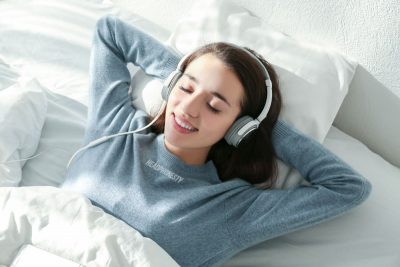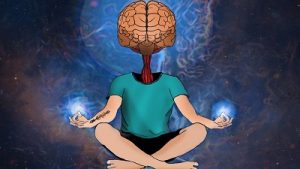This article consists of all information you need about deep sleep meditation music. We have a gift for you at end of this article. If you want to sleep at right time and for a good time then this article is for you. You will get solutions for deep sleep and also some relaxing music. How relaxing music work for your deep sleep. Is this Possible to meditate in deep sleep? What is meditation by music?
Why Sleep is important?
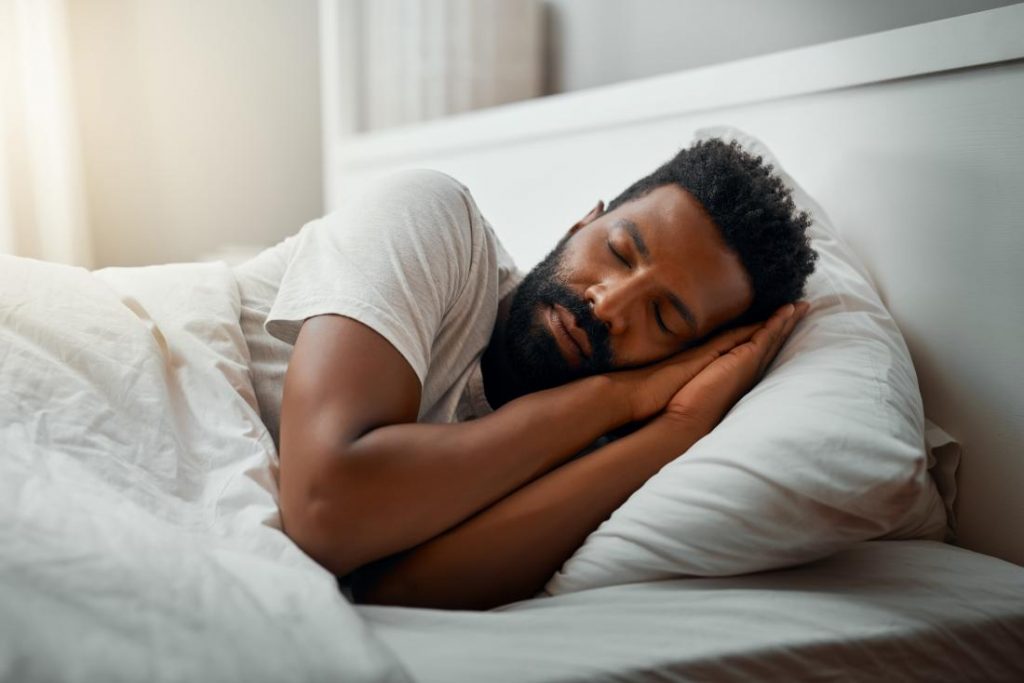
To maintain good health and well-being throughout your life, sleep is essential. What occurs when you are asleep influences how you feel when you are awake. Your body is working to support optimal brain function and keep you physically healthy while you sleep.
Sleep supports growth and development in kids and teenagers. Over time, getting insufficient sleep can increase your chance of developing chronic (long-term) health issues. Additionally, it may impact how well you reason, act, work, learn and interact with others. There are some Major effects that bad sleep can cause. I am mentioning some of them below.
Heart and circulatory system
When you fall asleep and enter non-REM sleep, your blood pressure and heart rate fall. During sleep, your parasympathetic system controls your body, and your heart does not work as hard as it does when you are awake. During REM sleep and when waking, your sympathetic system is activated, increasing your heart rate and blood pressure to the usual levels when you are awake and relaxed. A sharp increase in blood pressure and heart rate upon waking has been linked to angina, chest pain, and heart attacks. People who do not sleep enough or wake up often during the night may have a higher risk of coronary heart disease, High blood pressure, obesity, and Stroke.

Effect on Hormones
Your body makes different hormones at different times of the day. This may be related to your sleep pattern or your circadian clock. In the morning, your body releases hormones that promote alertness, such as cortisol, which helps you wake up. Other hormones have 24-hour patterns that vary throughout your life; for example, in children, the hormones that tell the glands to release testosterone, estrogen, and progesterone are made in pulses at night, and the pulses get bigger as puberty approaches.
Metabolism and sleep
Numerous circadian clocks, including those in the liver, fat, and muscle, influence how your body processes fat. For instance, the circadian clocks ensure that your liver is ready to assist in fat digestion at the proper times. If you eat at strange times, your body might process fat differently. Studies have shown that not getting enough quality sleep can lead to:
- Higher levels of the hormones that control hunger, including leptin and ghrelin, inside your body
- Decreased ability to respond to insulin
- Increased consumption of food, especially fatty, sweet, and salty foods
- Decreased physical activity
- Metabolic syndrome
Effect on Immune System
You breathe less frequently and deeply as you sleep, which results in less oxygen intake. People with health issues like asthma or chronic obstructive lung disease may experience complications as a result of these changes (COPD). Typically, asthma symptoms are worse while you’re sleeping in the morning. Similarly to this, breathing issues in persons with lung conditions like COPD might get worse when they are asleep.
Sleep also affects different parts of your immune system, which become more active at different times of the day. For example, when you sleep, a particular type of immune cell works harder. That is why people who do not sleep enough may be more likely to get colds and other infections.
Problems with thinking and memory
Sleep is beneficial for memory consolidation and learning. Lack of sleep, especially poor quality sleep, can make it difficult to concentrate and think effectively. For more information on how sleep deprivation impacts daily activities like driving and academic performance, visit our page on sleep deprivation and deficiency.
What is deep sleep?
You must reach a deep sleep stage if you want to feel rested when you wake up. In contrast to REM sleep, deep sleep occurs when your body and mind gradually calm down. The duration of the first stage of deep sleep ranges from 45 to 90 minutes. With each sleep cycle, it gets shorter after lasting longer in the initial half of the night.

It is in charge of assisting you in processing the data you come across daily. The brain cannot turn this knowledge into memory if you don’t get enough deep sleep.
Deep sleep provides a lot of advantages, and those who perform analytical and calculating tasks must prioritize this. During deep sleep, the brain’s glucose metabolism rises, supporting both short- and long-term memory as well as general learning. Additionally, during deep sleep, the pituitary gland releases critical chemicals that aid in bodily development and growth, such as the human growth hormone.
Other benefits of deep sleep include:
- energy restoration – After a full day of work, the body needs a good sleep. It must of high quality and better for brain and body restoration. That is deep sleep.
- cell regeneration – Most of the cells that get torn off or get injured get regenerated at the time of deep sleep.
- increasing blood supply to muscles – deep sleep makes the body relax at its best this is very easy for the body to supply blood properly at the time of sleep.
- promoting growth and repair of tissues and bones – Doctors say it is very easy to sleep more at the time of injury. Because Cells and body tissues get recovered at this time very much.
- strengthening the immune system – We have already discussed how sleep increases the Immunity of the body, Deep sleep does that in a better way.
How to Know You are Getting Enough Sleep or Not?
If you wake up feeling exhausted, it may be a sign that you’re not getting enough deep sleep. At home, wearable devices measure sleep by tracking your body’s movements during the night. This technology is still relatively new. While it may help identify sleep patterns, it may not be a reliable indicator of how much deep sleep you’re getting.
Your doctor may recommend a sleep study called polysomnography (PSG). During this test, you’ll sleep at a lab while hooked up to monitors that measure:
- breathing rate
- oxygen levels
- body movements
- heart rate
- brain waves
Your doctor can use this information to see if you’re reaching deep sleep and other stages throughout the night.
Heat may promote more slow-wave sleep. For example, taking a hot bath or spending time in a sauna before bed may help improve your sleep quality.
Eating a low-carbohydrate diet or taking certain antidepressants may also promote deep sleep, though more research is needed in this area. Getting enough sleep in general may also increase your deep sleep.
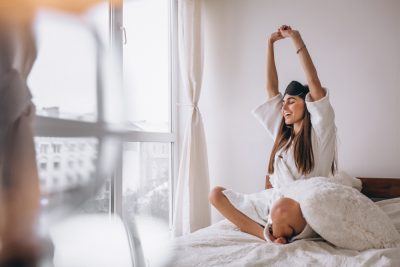
Here are some tips:
- Put yourself on a bedtime schedule where you go to sleep and wake up at the same time each day.
- Get plenty of exercises. About 20 to 30 minutes
- each day is a good start, just avoid working out in the hours before bedtime.
- Stick to water and other decaffeinated drinks before bed. Caffeine, alcohol, and nicotine may make it harder to get a good night’s rest.
- Create a bedtime routine to unwind from the day, like reading a book or taking a bath.
Meditation is the best way to get the best quality sleep and that too through Special audio, Called deep sleep meditation music.
Can relaxing music help in sleep?
Music is a powerful art form. While it may get more credit for inspiring people to dance, it also offers a simple way to improve sleep hygiene, improving the quality of sleep and decreasing the time you take to fall asleep.
deep sleep meditation music can aid sleep by helping you feel relaxed and at ease. With streaming apps and portable speakers, it’s easier than ever to take advantage of the power of relaxing music wherever you go. deep sleep meditation music promises accessibility and potential for sleep benefits, it might be a good time to try adding it to your nightly routine.
Parents know from experience that lullabies (in India Lori) and relaxing music can help babies to fall asleep. Science supports this common observation, showing that children of all ages, from premature infants to elementary school children, sleep better after listening to deep sleep meditation music.
Fortunately, children aren’t the only ones who can benefit from relaxing music before bedtime. People across age groups report better sleep quality after listening to deep sleep meditation music
In one study, adults who listened to 45 minutes of deep sleep meditation music before going to sleep reported having better sleep quality beginning on the very first night. Even more encouraging is that this benefit appears to have a cumulative effect with study participants reporting better sleep the more often they listen to rock music in their nightly routine.
Using relaxing music can also decrease the time it takes to fall asleep. In a study of women with symptoms of insomnia, participants played a self-selected album when getting into bed for 10 consecutive nights. Before adding music to their evening routine it took participants 27 to 69 minutes to fall asleep, after adding relaxing music it only took 6 to 13 minutes.
Why Does Music Affect Sleep?
The ability to hear music depends on a series of steps that convert sound waves coming into the ear into electrical signals in the brain. As the brain interprets these sounds, a cascade of physical effects is triggered within the body. Many of these effects either directly promote sleep or reduce issues that interfere with sleep.
Several studies suggest that deep sleep relaxing music enhances sleep because of its effects on the regulation of hormones, including the stress hormone cortisol. Being stressed and having elevated levels of cortisol can increase alertness and lead to poor sleep. Listening to relaxing music decreases levels of cortisol6, which may explain why it helps put people at ease and release stress.
Music triggers the release of dopamine, a hormone released during pleasurable activities, like eating, exercise, and sex. This release can boost good feelings at bedtime and address pain, another common cause of sleep issues. Physical and psychological responses to music are effective in reducing both acute and chronic physical pain.
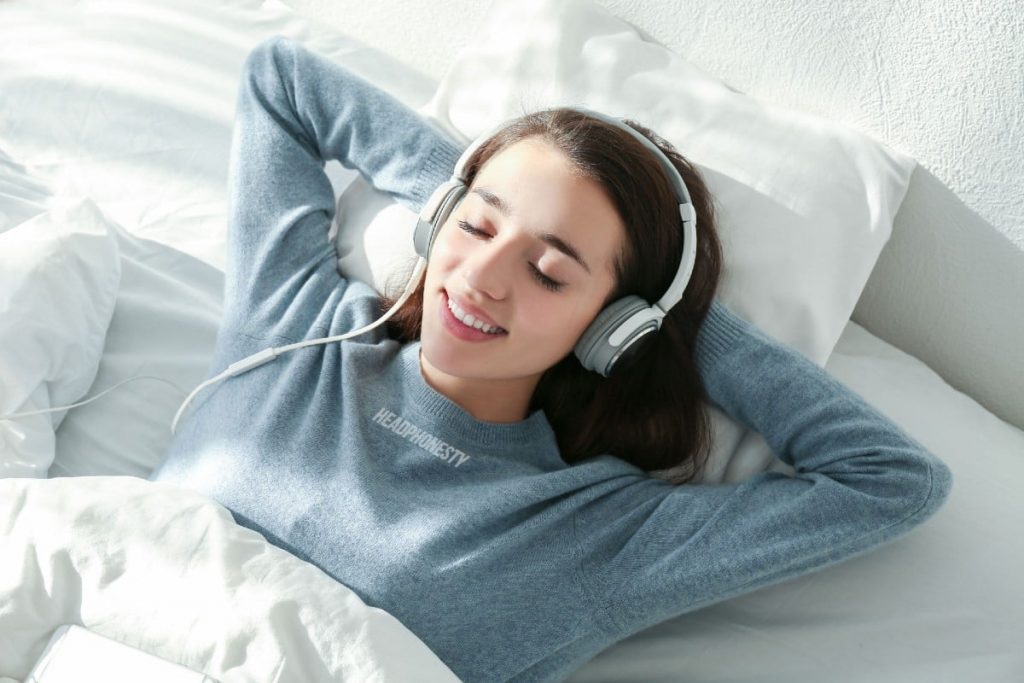
Listening to relaxing music can also contribute to relaxation by soothing the autonomic nervous system. The autonomic nervous system is part of your body’s natural system for controlling automatic or unconscious processes, including those within the heart, lungs, and digestive systems. Deep sleep relaxing music improves sleep by calming parts of the autonomic nervous system, leading to slower breathing, lower heart rate, and reduced blood pressure.
Many people with poor sleep associate their bedrooms with frustration and sleepless nights. Music can counteract this, distracting from troubling or anxious thoughts and encouraging the physical and mental relaxation needed to fall asleep.
Night-time noise, whether it’s from roads, aeroplanes, or noisy neighbours, can decrease sleep efficiency and is linked to several adverse health consequences including cardiovascular disease. Music can help to drown out these environmental noises and increase sleep efficiency.
What Kind of Music Is Best For Sleep?
It’s natural to wonder about the best type of music for sleep. Research studies have looked at diverse genres and playlists and there isn’t a clear consensus about the optimal tune for sleep. What we do know is that studies have typically used either a self-curated playlist or one that has been designed specifically with sleep in mind.
One of the most significant factors in how music affects a person’s body is their musical preferences. Effective custom playlists may include songs that have been relaxing or that have helped with sleep in the past.
When designing a playlist, one factor to consider is the tempo. The tempo, or speed, at which music is played is often measured in the number of beats per minute (BPM). Most studies have selected music that is around 60-80 BPM. Because average resting heart rates range from 60 to 100 BPM, it’s often hypothesized that the body may sync up with slower music.
For those that don’t want to design their playlist, online music services have stepped in and usually offer pre-packaged playlists for specific activities. Helpful playlists may be curated for sleep or relaxation. It may be easiest to find playlists that focus on calming genres, like classical or piano pieces.
Feel free to experiment with different songs and playlists until you find one that’s right for you. At the end of this article, you are going to get some amazing gifts for your sleep.
What is deep sleep meditation music?
Let us break this phase-out to understand this better.

- Deep sleep: Deep sleep is the time of sleep when you have no control over your body. The body is in complete relaxation mode. You do not know when you fall asleep and when you wake up. The benefits of deep sleep are already discussed in the above paragraphs. Deep sleep is sleep that is not interrupted and gives you the strength to run the day with full power.
- Mediation Music: This is a state of mind when you are connected with your soul fully or partially. When you are so unconscious in deep sleep getting into this state is much easy for anyone. But most of the time you have noticed that in sleep you face many horror dreams or good dreams even, that interrupt your deep sleep.
Music that makes your deep sleep uninterrupted and lets you remain in a state of meditation is called deep sleep meditation music. Any music consists of two major parts sound and vocals. Only sounds can also play an important part in getting good sleep. But what if you can get the best vocals for a better understanding of meditation practices in sleep? We have the best audio for you at last check it once before you leave this article.
Before that let us first discuss sounds that can give you better sleep.
Nature sounds
Listening to the sounds of nature, like that of the ocean waves, birds in the jungle, or the pounding of raindrops, are some of the most common types of deep meditation “sounds” that people use to fall asleep. Nature sounds have been found to help ease the body’s fight or flight response to stress and can help the brain make the transition from the business of daytime to a more resting mindset.
Classical music:
Classical music is commonly thought of as somnolent music, that which makes us feel drowsy, sleepy, and peaceful. Instrumental music of classical type is available on youtube for free. You can check that out too.
Binaural beats
While not exactly music in and of itself, binaural beats are a combination of two different sound frequencies –one in each ear– to create the sense of a single new frequency which your body then “tunes” itself too. These special soundwaves have been shown to help slow down brain activity, helping you to relax and fall asleep more quickly. Try this youtube mix of binaural beats by Sleep Tube for your sleep meditation music, and make sure to use headphones to get the full effects!
Ambient music
Following closely in the footsteps of nature sounds is another form of relaxing music known as ambient music. Not music in the traditional sense, as ambient music generally lacks a tune or even a discernable beat, but the tone of which is excellent for relaxation and meditation. This “Deep, Relaxing Ambient Music Mix” is a compilation perfectly suited for your sleep music meditations.
Modern music
Perhaps classical music doesn’t do the trick, and rainforest-style sounds just don’t do it for you either. There are plenty of more contemporary musical stylings to choose from that can help you shut off your brain and help put you into a more sleep-inducing headspace, as long as the words don’t distract you too much. Here are a few suggestions to get you started building your perfect sleepy slumber playlist:
- Simon & Garfunkel – ‘The Boxer’
- Coldplay – ‘Shiver’
- Radiohead – ‘How To Disappear Completely
- Arctic Monkeys – ‘Cornerstone’
- The Doors – ‘Riders On The Storm
- R.E.M. – ‘Daysleeper’
- The Velvet Underground – ‘Pale Blue Eyes’
The great thing about meditation music for sleep beyond its relaxation and stress management capabilities is that it is easily accessible and that it can be helpful for anyone from the very young to the elderly.
Meditation by Music – A Brain Rewire Music Recommended Here
Now we have read a lot about meditation and music but now in this part, we will study more about their connection firstly let us understand how music affects us. We have seen some people who listen to music all the time. Some listen to music in the morning while others listen in the evening. Does listening to music at different times of the day also affect its power? Let’s check this out.
Music can have a profound effect on both emotions and the body. Faster music can make you feel more alert and concentrate better. Upbeat music can make you feel more optimistic about life. A slower tempo can quiet your mind and relax your muscles, making you feel soothed while releasing the stress of the day. Music is effective for relaxation and stress management.

Research confirms these personal experiences with music. Current findings indicate that music around 60 beats per minute can cause the brain to synchronize with the beat causing alpha brainwaves (frequencies from 8 – 14 hertz or cycles per second). This alpha brainwave is what is present when we are relaxed and conscious. To induce sleep (a delta brainwave of 5 hertz), a person may need to devote at least 45 minutes, to a relaxed position, listening to calming music. Researchers at Stanford University have said that “listening to music seems to be able to change brain functioning to the same extent as medication.” They noted that music is something that almost anybody can access and making it an easy stress-reduction tool.
You have already seen that many people use high-frequency music in gyms to motivate them to lift heavy weights. Some use peaceful music to focus on studies and work. Music has a very powerful impact on our work, life, and relations. It channelizes our life on what track we want it. If we listen to something spiritual then we get in that direction and similarly it comes to rock music. Gangster-type songs motivate us to do random things and throw off things.
So what type of music reduces stress the best? A bit surprising is that Native American, Celtic, and Indian stringed instruments, drums, and flutes are very effective at relaxing the mind even when played moderately loud. Sounds of rain, thunder, and nature sounds may also be relaxing particularly when mixed with other music, such as light jazz, classical (the “largo” movement), and easy-listening music. Since with music we are rarely told the beats per minute, how do you choose the relaxation music that is best for you?
The answer partly rests with you: You must first like the music being played, and then it must relax you. You could start by simply exploring the music on this web page. Some may relax you, some may not. Forcing yourself to listen to relaxation music that irritates you can create tension, not reduce it. If that happens, try looking for alternatives on the internet or consult with Counseling Service staff for other musical suggestions. It is important to remember that quieting your mind does not mean you will automatically feel sleepy. It means your brain and body are relaxed, and with your new calm self, you can then function at your best in many activities.
When it comes to sleep meditation simple music is good for meditation. But the Best is relaxing music that helps in meditation. When it comes to sleep meditation simple music is good for meditation. But the Best is meditation music. Now I tell you about the best meditation music available. This Audio can help you to meditate day and night. The amazing brain rewires audio, this audio course comes with 14 parts in it. All parts are magically helpful for meditation and better sleep. Just put on your earphone and enjoy this Brain Rewire Audio.
Results of deep sleep meditation music?

Deep sleep meditation music will give you all your energy back in the morning when you get up. There are many benefits of deep sleep meditation music. I am discussing some down.
- Take less time to fall asleep: deep sleep meditation music will help you to get to sleep soon as you go to bed. Many people struggle all night because they do not fall asleep at right time. They take medicines and other drugs to fall asleep. All these ways are harmful to them in long term. Brain rewiring Audio can help you in a non-harmful way.
- Get good deep sleep: we now know how much deep sleep is important for better health and full body functionality. Deep sleep meditation music relax your body and brain to get better mental health at night while sleeping and awaken you in a better condition to exercise when you wake up.
- Completely rewire your Brain: Brain rewires audios are not just for better sleep. They meditate your brain while seeping. You must take their benefit to rewire your brain. It kills negative talks and thoughts in your mind. The brain is a very complex organ and getting it right can be helpful for you in many ways.
- Optimize your Sleep duration: Not getting the right amount of sleep is also a big problem for many people. This relaxing music will help you get the right amount of deep sleep at right time. If you have the right amount of sleep it increases your productivity and also awakens your soul, Lighten your mind this is only possible by brain rewiring audio.
- Get your mood right: Because of not having the proper amount of sleep it is very common for people to have very bad moods, anger issues anxiety. You can overcome all these problems by adding brain rewire audio to your sleeping hygiene.
Summary
We learned in this article about deep sleep meditation music. we started this by understanding different ways of getting better sleep. I have shared some of the best tips for getting better sleep. Deep sleep is sleep where you do not feel your body, your heartbeat goes low slowly and your brain gets into a fully relaxed mood. In this type of sleep, you do not dream your body and brain take proper rest. Many people do not have a deep sleep in their beds. They start using bad and harmful ways to get deep sleep. It can be medicinal or a drug for deep sleep.
A better way to get good sleep is meditation, And that too meditation by music I have explained some practices you can use for better sleep, Such as exercises, and reading books. If you do not have time to do all these activities you must try relaxing music. It’s better to use deep sleep meditation music. deep sleep meditation music also helps in meditation by music. Many people have used it for better results than normal relaxing music. You must use our deep sleep meditation music for meditation. The name of that is Brain rewire Music. This deep sleep meditation music has many other benefits too. Must check it out! for Deep sleep meditation music
LISTEN TO FREE BRAIN REWIRE IN HINDI – JOURNEY TO THE UNIVERSE
CLICK HERE TO BUY AND REWIRE YOUR ANXIOUS AUDIBLE IN ENGLISH
Buy Avatar Brain Rewire In English
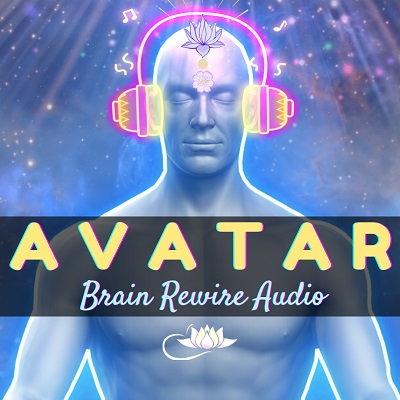
Go For Aryamaan Hindi Course Full

how to increase serotonin production in the guthow to increase serotonin production in the guthow to increase serotonin production in the guthow to increase serotonin production in the guthow to increase serotonin production in the guthow to increase serotonin production in the guthow to increase serotonin production in the guthow to increase serotonin production in the guthow to increase serotonin production in the gut
Also Read :
- Kundalini Yoga Benefits
- Can Ayurveda Cure Digestive Problems?
- Benefits of planting Tulsi at home
- Reasons behind why not to eat onion and garlic?
- How to Cure Depression with Yoga
- Best ways to start your day positively
- 15 Tips to Make Your Diet Healthier
- Benefits of walking daily

